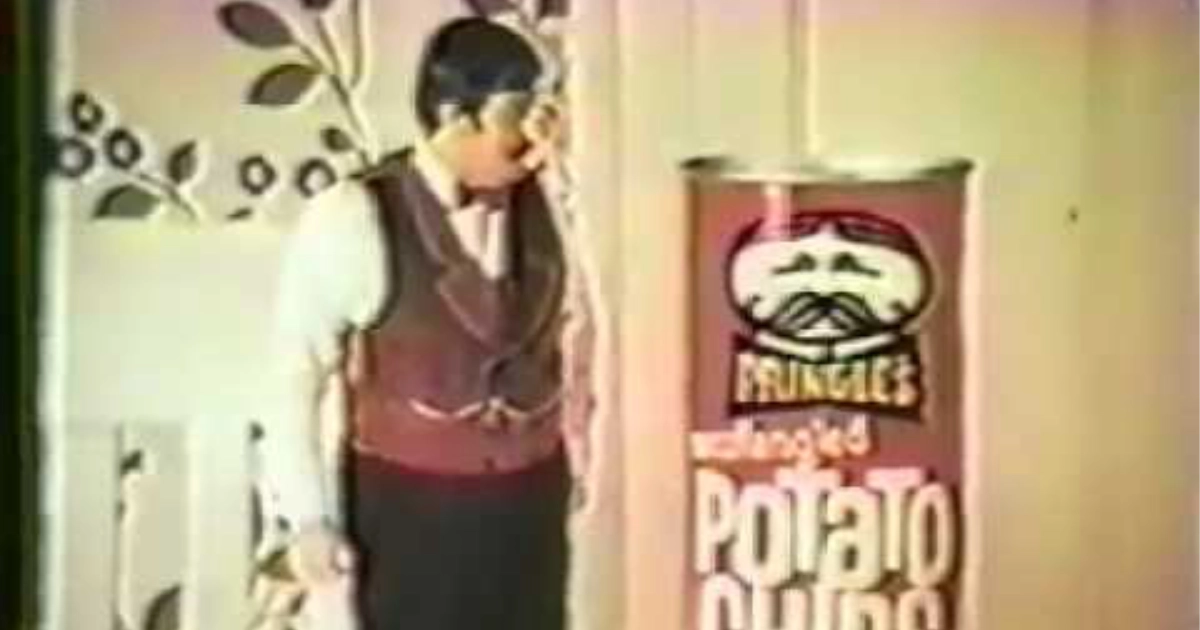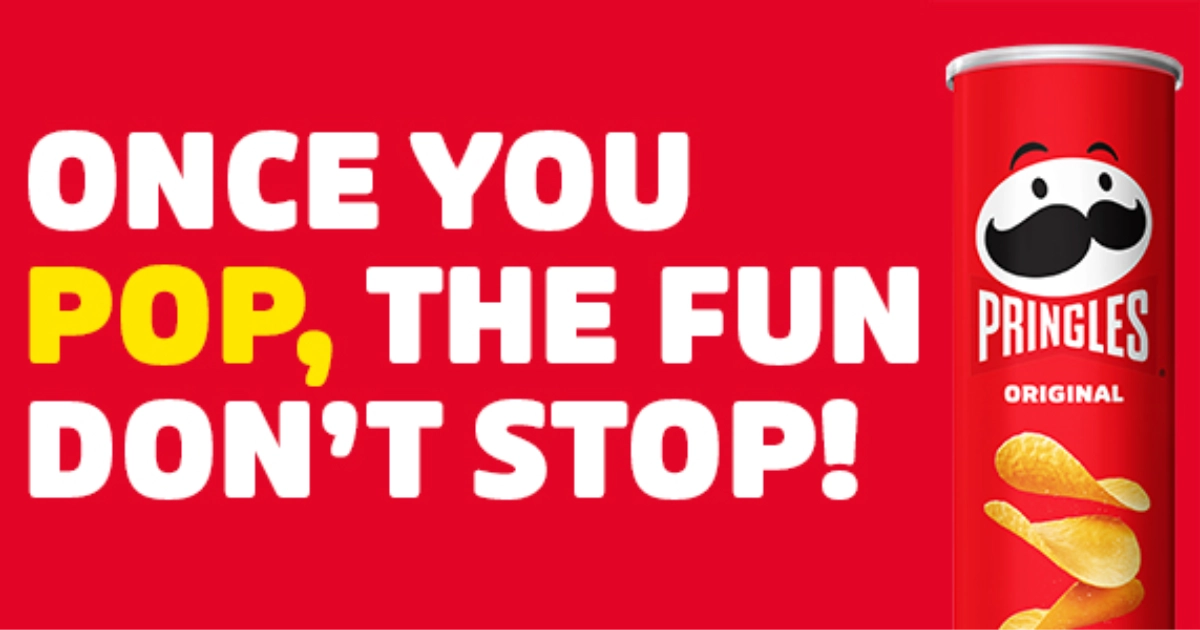.webp)
© History Oasis

1968-1975
When Pringles hit shelves, nobody knew what to make of them. There was nothing like these chips on the market. People thought they looked like curved roof tiles stacked in a tennis ball can. So they came up with their first slogan to educate the public. The word "newfangled" did some heavy lifting here, essentially saying "yes, we know this is weird." Smart move. People expected chips to be irregular, greasy, and fragile. Pringles were none of those things. The name lasted until lawyers from Lay's and other chip makers debated if these were even real potato chips.

1970s-early 1980s
Pride in Pringles' engineering design helped the brand with its new campaign. Pringles had solved genuine problems—no more digging through bag bottoms for crumbs, no more oil-stained fingers, no more stale disappointment. The slogan hammered home that these were the best ships on the market and no other chip brand stacked up. Regular chips broke. Pringles didn't. Regular chips went stale. Pringles stayed crisp. The pun worked because it was true.

1980s
Pringle's snack slogan in the 1980s was launched with a jingle. The campaign was launched with commercials full of synthesizers and bold claims about flavor addiction. Pringles dropped their practical engineer persona for something more theatrical. "Fever" suggested something almost medical—like Pringles weren't just snacks but symptoms of a condition. The rhyme scheme made it stick in people's heads whether they wanted it there or not. This coincided with their first real flavor expansion, so suddenly "the flavor" could mean barbecue, sour cream and onion, or whatever else they dreamed up.

1990s-present
Brilliant in its simplicity. "Pop" became shorthand for the entire Pringles experience. It was the sound of breaking the seal, the satisfying release, the access to perfectly aligned chips. The slogan acknowledged that once you start eating them, the tube empties fast. No pretense about moderation or sharing. Just an honest admission of the compulsion. The campaign worked everywhere because pop is the sound everyone knows, no matter your language.

2000s-present
Marketing committees probably debated the grammar for this slogan for months. "Don't" instead of "doesn't" sounds deliberately casual, almost rebellious. This newest slogan positions Pringles as the snack that breaks rules—including English ones. The shift from "can't stop" to "fun don't stop" moved emphasis from individual compulsion to group entertainment. Suddenly, Pringles weren't about personal weakness but social energy. The grammar mistake became the point. And Pringles are too fun for proper English.